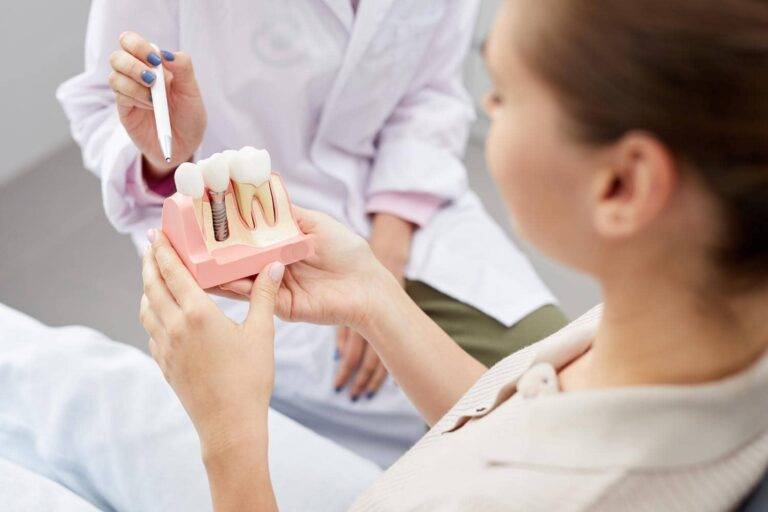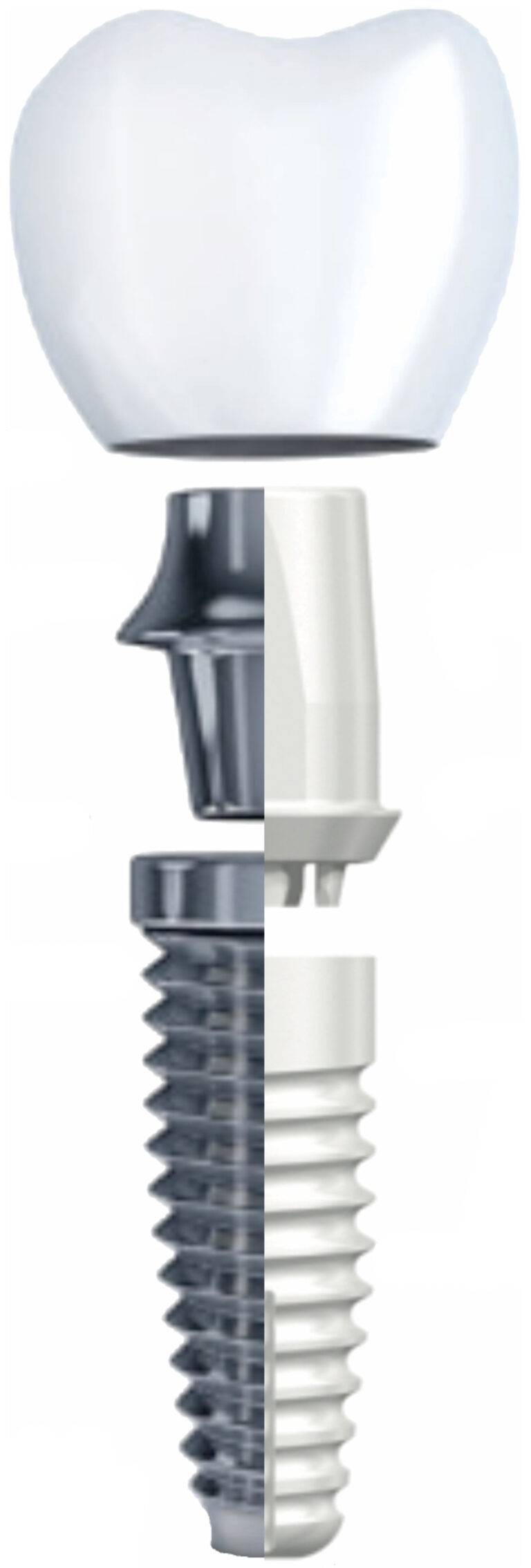Project
Discover all about the NOMAD Horizon Europe project!

Project summary
The overall aim of NOMAD is to develop the next generation of dental implants that can prevent peri-implant diseases and thus, increase the long-term implant success, with the concomitant reduction of the socio-economic burden associated with these diseases in Europe. To address these unmet clinical needs, NOMAD will apply multiple biomaterial innovations to the various dental implant components (implant fixture, abutment and restoration), modifying the state-of-the-art titanium (Ti) and/or emerging zirconia (ZrO2) implants with materials able to promote tissue integration and prevent/control biofilm formation and thus avoid peri-implant diseases (peri-implant mucositis and peri-implantitis) and increase implant longevity by the following multi-functionalities:
Objectives
Promotion of a stable soft-tissue seal to the abutment, thereby significantly reducing epithelial downgrowth (by one third), and thus preventing colonization of the abutment surface by oral bacteria;
Reduction of biofilm formation in the trans- and supragingival implant region, i.e., at the abutment/restoration level (of at least ~90% reduction of biofilm formation by pathogenic bacteria, and/or significant log reductions in the numbers of pathogenic bacteria), and thereby also reduction of the biofilm-driven inflammation (significant reductions in bleeding upon probing, BOP);
Enhancement of osseointegration for ZrO2 fixtures, thereby ideally reducing the osseointegration time (below the current 8-12 weeks), and added anti-biofilm functionality for Ti fixtures, which does not hinder osseointegration as compared to pristine Ti, but prevents biofilm formation in the endosseous region, i.e., at the fixture level.
Project structure
The NOMAD project will investigate different approaches suited for Ti and ZrO2 dental implants, respectively, utilizing additive manufacturing (also referred to as 3D printing) for custom-made personalized parts as well as controlled release materials and nanotechnology for an overall biomimetic treatment modality.
Biomaterials performance will be progressively validated for use in dental implants by consecutive biomechanical stability testing and complex in vitro assays up to the generation of a preclinical in vivo efficacy data set.
As such, the project will proceed from TRL3 and reach TRL5, including a demonstration of production scale up and GMP as well as an economical evaluation of cost savings and patient benefits. Furthermore, a regulatory strategy will be developed in preparation of post-project exploitation paths.

- WP1: Surface functionalisation
- WP2: Smart releasing dental implants
- WP3: Biomechanical stability
- WP4: In vitro evaliation
- WP5: Scale-up & In vivo
- WP6: Communication, dissemination, health economics and technology transfer
- WP7: Project management
Project details
- Project title: Novel Biomaterials to Prevent Dental Peri-implant Infections
- Project acronym: NOMAD
- Horizon Europe grant agreement ID: 101091669
- EU contribution: € 4 708 219,25
- Starting date: 1 December 2022
- Duration: 54 months
- Topic: HORIZON-CL4-2022-RESILIENCE-01-13 - Smart and multifunctional biomaterials for health innovations (RIA)
- Link: https://cordis.europa.eu/project/id/101091669
Other projects
6 other research projects have been approved for funding within the Horizon Europe call HORIZON-CL4-2022-RESILIENCE-01-13


